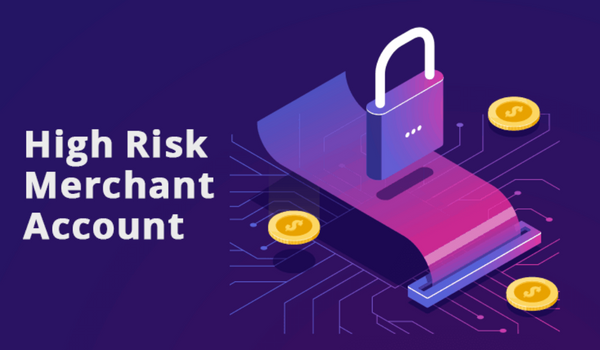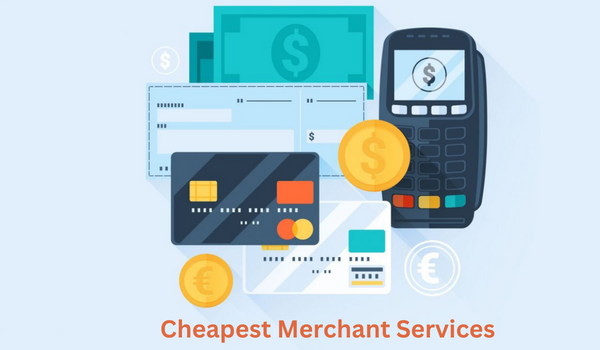
What is an internet merchant account?
An Internet merchant account in California is a type of business bank account that allows a company to accept payments from customers over the Internet. It is a particular merchant account associated with a website, typically used for e-commerce. The account allows merchants to securely process credit and debit card payments, as well as other forms of electronic payments, in real time.
Types of internet merchant accounts
- Third-Party Processor: This type of merchant account allows customers to make purchases with a credit or debit card through a third-party processor like PayPal, Google Pay, or Apple Pay.
- Payment Gateway: A payment gateway is a secure service that allows customers to make payments online. It usually connects to the merchant’s website and lets customers enter their payment information.
- Traditional Merchant Account: A traditional merchant account allows customers to make purchases using their credit or debit card directly from the merchant’s website.
- Virtual Terminal: A virtual terminal allows merchants to process payments using a computer, smartphone, or tablet. This type of merchant account is ideal for businesses that don't have a physical point-of-sale system.
- Mobile Payment Processor: A mobile payment processor allows customers to make purchases using their smartphones. It is ideal for businesses that are constantly on the move.
- Recurring Billing Merchant Account: A recurring billing merchant account allows merchants to process automatic payments from customers regularly. This type of merchant account is ideal for businesses that offer subscription services.
Internet merchant account Process
1. Credit Card Processing
A merchant account is an account set up by a merchant (e.g., a retailer or online business) with a bank or payment processor that allows the merchant to accept customer credit card payments. Credit card processing is the process by which credit card transactions are processed, including authorization, settlement, and funding.
2. Online Payment Solutions
Enable merchants to accept payments through payment gateways and payment processors. Payment gateways are web-based services that securely process customer payments, while payment processors are companies that provide the necessary infrastructure to process payments. Payment processors offer a variety of services, including payment authorization, fraud protection, and account reconciliation.
3. Fraud Prevention
- Implement Address Verification Service (AVS): AVS is a fraud prevention tool that involves comparing the customer's billing address with the address on file with their credit card issuer. The transaction gets declined when the addresses do not match.
- Enable 3D Secure: This security protocol can help protect you from fraud by authenticating the customer’s identity.
- Implement Card Security Code (CVV): CVV is an anti-fraud security feature to help verify that the customer placing the order has the credit card in their possession.
- Utilize Fraud Scoring: This is a process of analyzing different elements of a transaction to determine the likelihood that the transaction is fraudulent.
- Utilize IP Address Verification: This is a process of verifying the customer's IP address to make sure it matches the cardholder's location.
- Set Transaction Limits: Setting limits on the amount of money that can be spent in a single transaction can help reduce the risk of fraudulent activity.
- Monitor Your Transactions: Regularly reviewing your transactions can help you detect and prevent fraud.
- Utilize Risk-Based Authentication: Risk-Based Authentication (RBA) takes into account the location, device, and other factors to determine whether to require additional authentication.
- Implement a blacklist/whitelist: A blacklist/whitelist is a list of customers or payment methods that are either accepted or blocked.
- Utilize Risk Management Services: Risk management services can help you monitor and manage fraud with real-time alerts and insights.
4. Merchant Services
Merchant services are payment processing services that allow businesses to accept payments from customers via credit card, debit card, or other forms of payment. Merchant services typically include a merchant account, payment gateway, and payment processor. Merchant services typically charge a fee for processing transactions and usually require businesses to have a merchant account set up.
5. Secure Gateway
A secure gateway is a technology that enables secure transactions between the merchant and the customer. It provides the merchant with a secure connection to the customer's financial information, allowing the merchant to process payments through a secure payment gateway. Secure gateways are necessary for merchants to accept credit or debit cards, and they also offer additional features like fraud protection and data encryption.
6. Mobile Payment Solutions
A mobile payment solution is a technology that allows users to make a payment using their mobile devices. Payments can be made using a variety of methods such as near-field communication (NFC), QR codes, or mobile App. Mobile payment solutions are becoming increasingly popular as more businesses move to accept payments through mobile devices. This type of account allows businesses to securely accept payments from customers and process them through a payment processor. Merchant accounts also offer features such as fraud protection, recurring payments, and transaction dispute resolution.
7. Payment Processing Solutions
- With the right payment processor, online businesses can have a secure and efficient payment solution that can help them increase sales and customer satisfaction.
- Online merchants can benefit from having an online merchant account by increasing sales, streamlining payment processing, and providing a secure and efficient way to accept payments. An online merchant account provider can provide a range of payment processing solutions, such as secure payment gateways, fraud protection, and data encryption. Payment gateways provide customers with an easy and secure way to make payments, while fraud protection ensures that all transactions are legitimate.
- The payment processor will also provide merchants with technical support and customer service. They can assist merchants in setting up their merchant accounts, troubleshooting any technical issues, and providing customer service support.
- Many payment processors offer competitive rates and fees, and they can provide merchants with the tools they need to process payments securely and efficiently.
8. Payment Gateway Integration
- Merchant account and payment gateway integration services allow businesses to accept credit cards, debit cards, and other forms of electronic payments and securely process them through a payment gateway such as PayPal, Authorize.net, and Stripe. The integration between the merchant account and payment gateway allows businesses to also quickly and securely process payments, while providing them with the ability to view and manage transactions, refunds, and customer data.
- The integration process typically involves setting up an account with the payment gateway, connecting the merchant account to the gateway, and setting up the connection between the two. Businesses must also ensure that the payment gateway and merchant account are properly integrated with their e-commerce platform and website. Additionally, businesses may need to configure the payment gateway to accept different types of payment methods, as well as configure the merchant account to accept different currencies.
- Integrating a merchant account and payment gateway can provide businesses with a secure and efficient way to process payments and manage customer data. By integrating the two, businesses can reduce the risk of fraud, increase their acceptance of payments, and gain access to reporting and analytics to better monitor their payment processing activities.
9. Automated Recurring Billing
Automated recurring billing (ARB) is a payment processing solution that automates the process of billing customers on a regular basis. It is generally used by companies with subscription-based services or products to ensure that their customers are billed on a regular schedule. ARB is a convenient way for merchants to ensure that their customers are billed on time and that their accounts are kept up to date. ARB also helps merchants save time and money by eliminating the need for manual billing processes.
10. Chargeback Management
A merchant account chargeback management system is a suite of tools and processes designed to help merchants manage the process of dispute resolution with customers. This includes processes to track and monitor chargebacks, dispute resolution, and associated activities. The system can help merchants reduce the time and cost associated with dispute resolution, as well as reduces the risk of lost revenue due to chargebacks.
Internet merchant account conclusion
A merchant account is an essential part of any business that engages in e-commerce. It allows a business to accept credit and debit card payments from customers. A merchant account allows a business to receive payments quickly and securely and helps increase sales and customer satisfaction. While there is a cost to obtaining a merchant account, the benefits of having one outweigh the cost. With a merchant account, a business is able to accept payments from customers around the world and process them quickly and securely.







